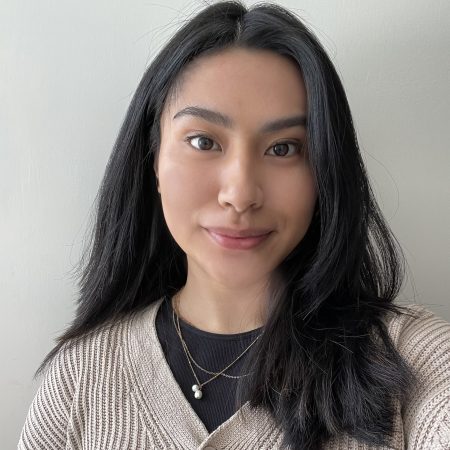
Clinical Trial Assistant Leyla Constantino is one of the newest members of the I’M WOMAN Trial team. Before joining the team, she studied midwifery at the University of Leeds, which led her to work as a clinical trial assistant at Calderdale and Huddersfield NHS Foundation Trust (CHFT) on the reproductive health and childbirth portfolio.
What did you do in your previous role?
I primarily worked with research midwives on maternity or gynaecology trials, including opening a neonatal trial, and studies that looked at women’s sexual health and infections.
I screened and recruited participants to a study which looked at the psychological and emotional effect of women giving birth sustaining a perineal injury from labour. It gave me a deeper understanding of women’s physical postpartum issues, such as urinary incontinence. Talking to women about their birthing experience and providing breastfeeding support and cuddling babies, which often you don’t have time to do as a midwife, was an incredible experience.
That is the beautiful thing I miss about midwifery – how rewarding it is to be able to support and empower other women.
How did studying midwifery prepare you to work in clinical trials?
My previous experience of training in different areas of midwifery, including a labour ward, has prepared me to work with the I’M WOMAN Trial sites. I can put myself in the clinician’s or midwife’s position. Having an understanding that midwives are incredibly busy and wards are understaffed also allows me to be resourceful and empathetic toward their work schedule when making requests.
What attracted you to join the I’M WOMAN Trial?
My clinical experience of witnessing PPH and awareness of women’s preventable deaths drove me to work on this trial. I trained in a tertiary obstetric unit in Leeds, so I’ve had a lot of experiences being involved in the clinical management of a postpartum haemorrhage in the UK.
The UK’s MBRRACE report, a statistical report of national maternal mortality, newborn and still births include what is causing women to die. At the time that I joined my midwifery course in 2019, I noticed stark disparities in the report, which highlighted black women are five times more likely to die in childbirth in comparison to white British women, for example. While Asian women are two times more likely to die.
I cannot understand why this continues in 2025, so I hope to bring this motivation to the trial to reduce maternal deaths on a global scale.
Can you tell us about your background in reproductive health and childbirth?
I supported the delivery of 16 studies at CHFT, ranging from the GBS three trial (GBS3 trial), a large multi-centre trial in the UK looking at whether testing pregnant women for Group B Streptococcus (GBS) reduces the risk of infection in newborn babies compared to what is currently in place in the UK. The current strategy is to offer antibiotics during labour to women who are considered an increased risk of their baby developing a group B Strep infection.
As a student and a clinical trials assistant I had the opportunity to observe both arms of the GBS3 Trial. Hospital sites were randomised to the group B Strep-specific swab test, known as Enriched Culture Medium (ECM) Testing. This offered women the opportunity to be offered a swab to test for GBS either at attendance for labour or at 36 weeks’ gestation. Anyone with a positive test would be offered antibiotic treatment in labour to reduce the risk of a GBS infection developing in their newborn babies.
I think people sometimes forget that pregnancy isn’t always straightforward. There are so many potential complications. Unfortunately, women’s health is still so underrepresented in research.
When you look at the numbers, women’s health studies – whether it’s on menopause, contraception, childbirth, even things like periods, endometriosis, or PCOS – are right at the bottom in terms of how many trials are open. Thankfully, we’re starting to see more attention and funding.
What is your proudest achievement?
When I was appointed NIHR Associate Champion for Reproductive Health and Childbirth within our Yorkshire and Humber region, it made me realise how important it is to share what’s working well across sites and ensure everyone feels recognised and supported, regardless of their role.
What inspired you to work on a clinical trial?
I’m an empathetic person, so even reading patients’ notes can make me teary if I see that something has gone seriously wrong, and things could have been prevented.
I am excited about working on research that contributes to making a positive change and lowers maternal mortality, while improving patient experiences.

